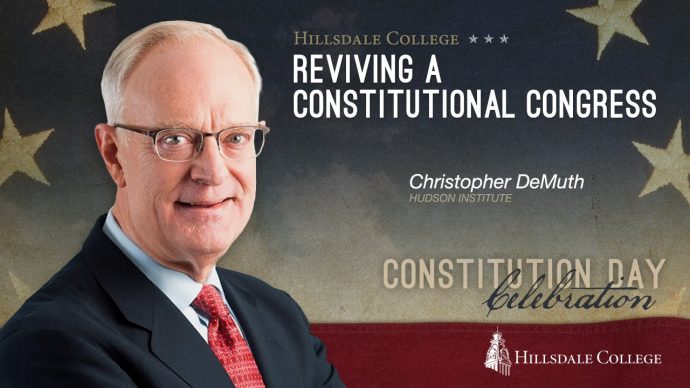Republicans and conservatives are not happy with what they’ve seen from their Republican controlled U.S. House and U.S. Senate — and much of the reason is because Congress has relinquished much of its Constitutional authority.
Christopher DeMuth, a Distinguished Fellow at the Hudson Institute, gave a talk in September at a Hillsdale College event during the week of Constitution Day on how Congress has evolved in the wrong direction. The video is below, and here is the opening of the version of what he said in Hillsdale’s publication Imprimis:
Our Constitution is often treated as a reliquary, worthy of reverence but no longer of much practical use. Yet the Constitution reflects, in many deep and subtle ways, the character of the people who established it and have lived and prospered under it for centuries. This is particularly true of its structural features of federalism and separated powers, which vindicate Americans’ democratic nature, our distrust of power, and our taste for open competition.
The struggle for power and advantage is a constant of human society. In democracies, that struggle is organized and advertised through political campaigns and elections. It is equally present within government, but there it is not always observable. In the parliamentary systems of Europe, open competition ends with the election returns and formation of a government. At this point legislative and executive powers are fused. Struggles over policy continue, but they work themselves out in private within ministry offices and leadership councils. A well-led government can present, at least for a time, a unified, dignified, self-confident public face.
That is seldom possible in the American system, where competition in government is exposed for all to see. The two political branches possess separate electoral bases and are assigned powers that are partly shared and partly independent. They are co-dependent and must work out their differences in public. Presidents, executive officials, and members of Congress may bring astute tactics and compelling rhetoric to the task, but in the heat of contention they are also prone to diatribes, bluffs, missteps, backtracking, and humiliations. Dignified the process is not.
Read more: Imprimis

